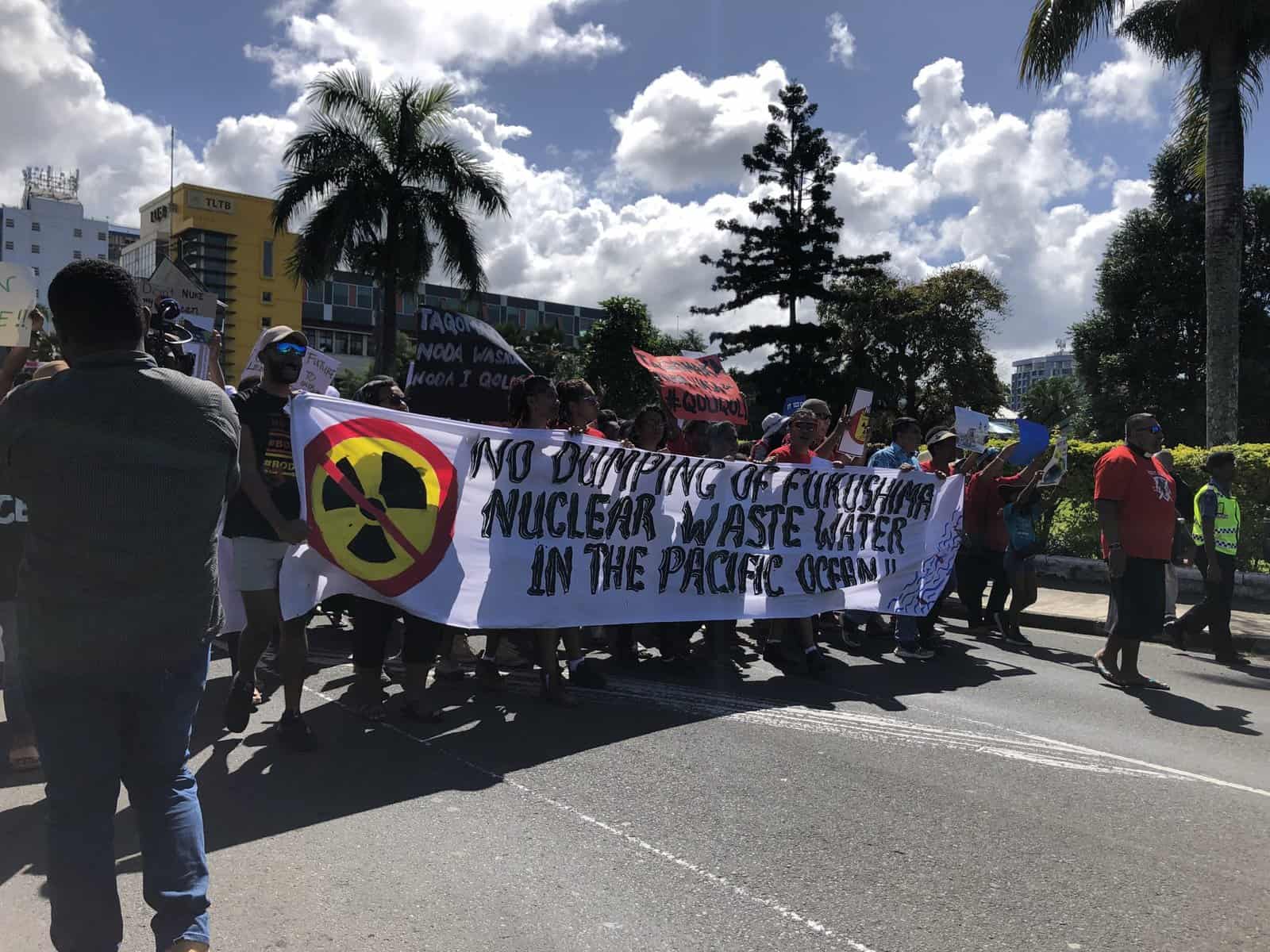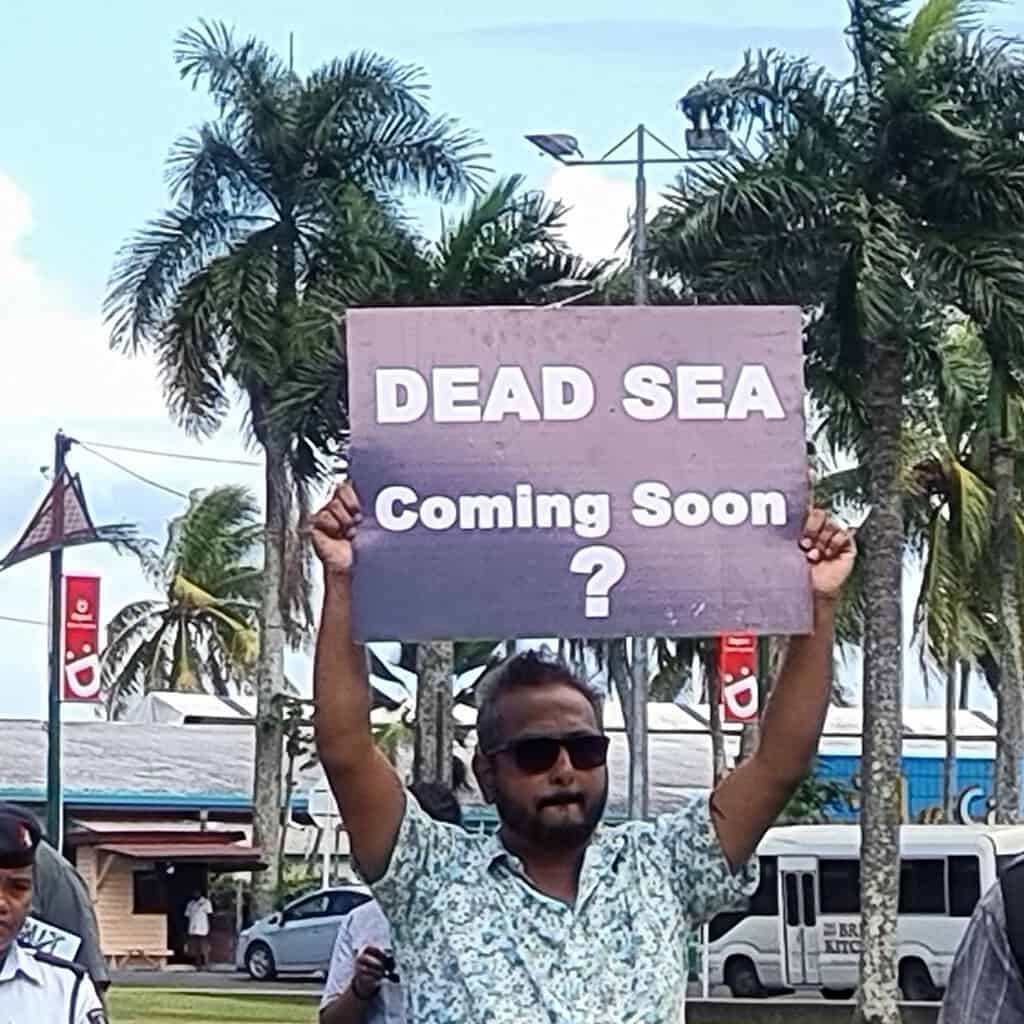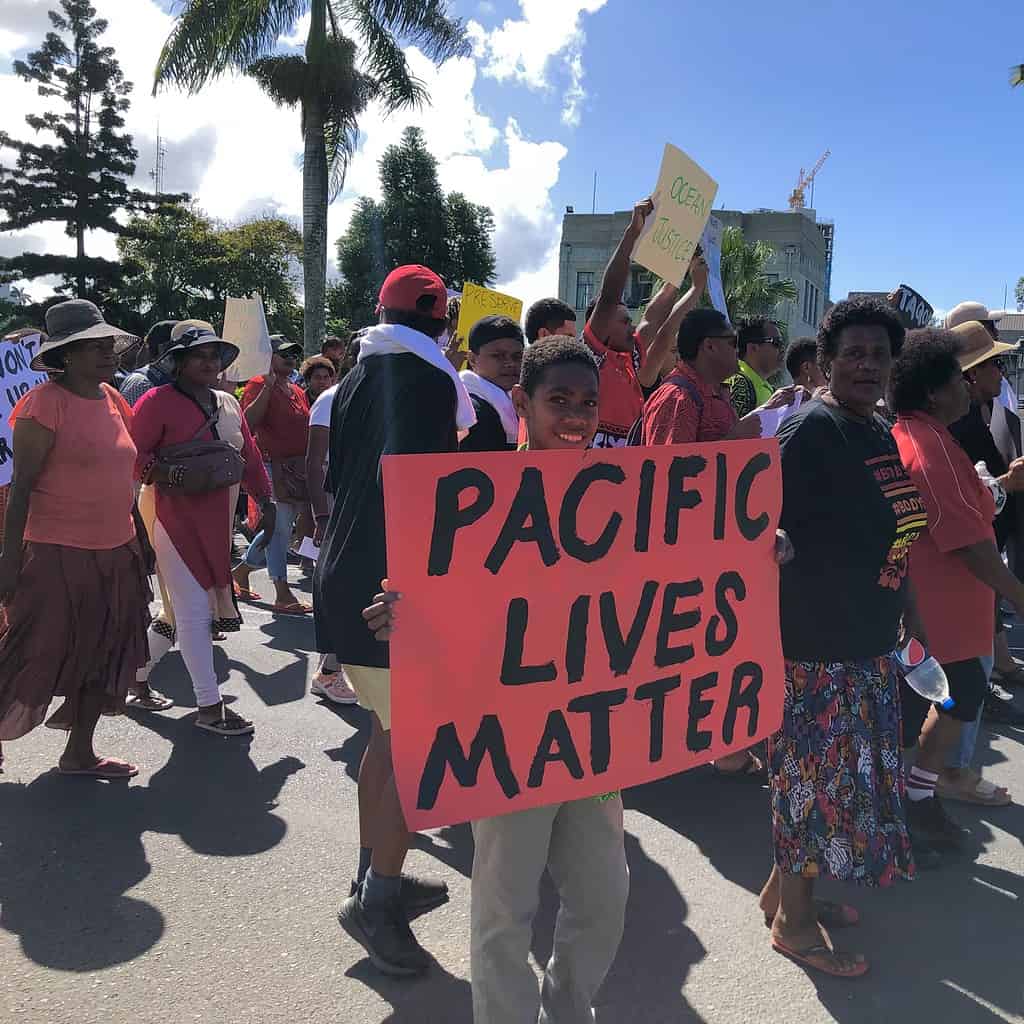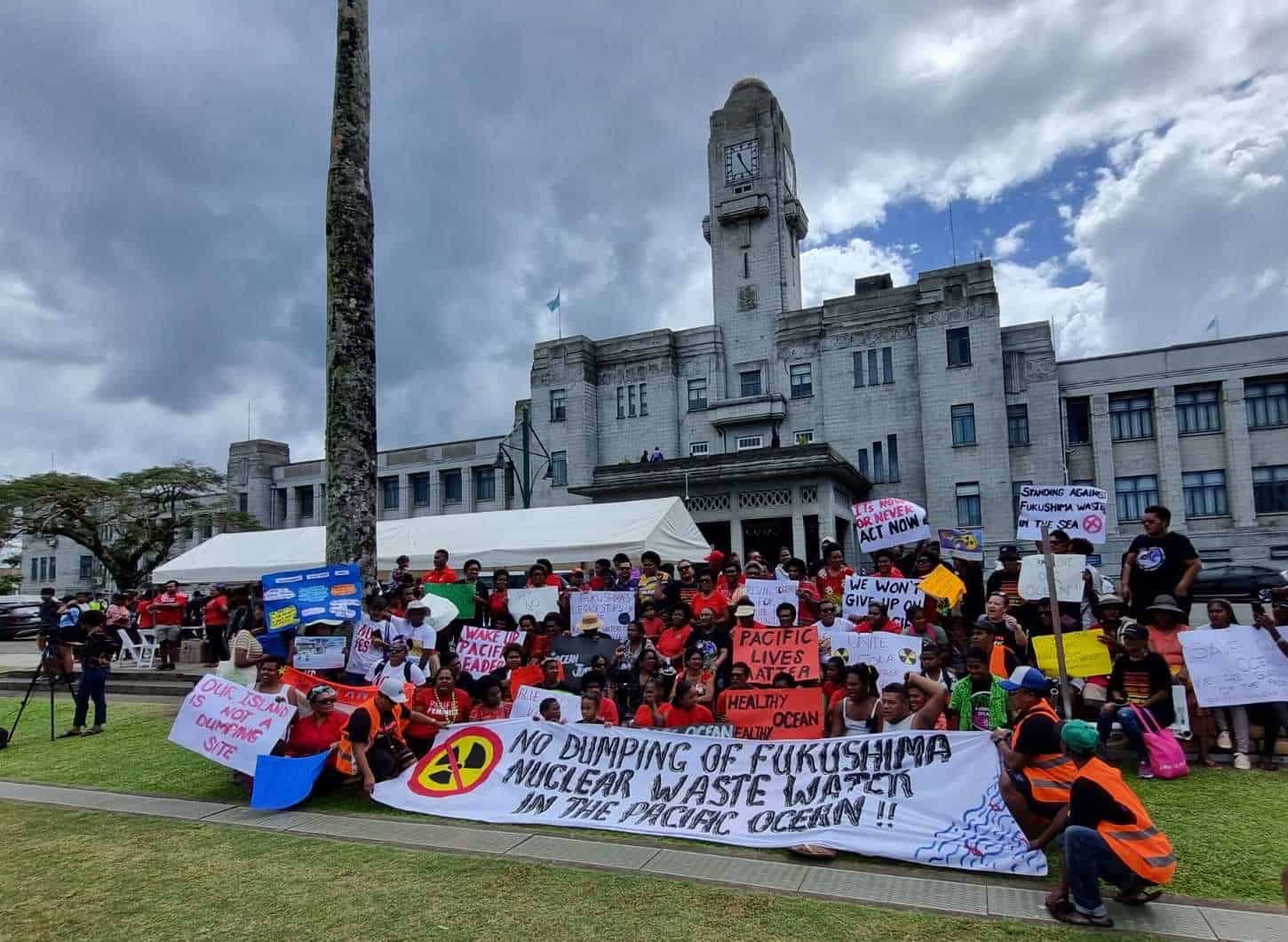In an outpouring of public protest, demonstrators from diverse backgrounds took to the streets of Suva today united against Japan’s release into the ocean of treated nuclear wastewater from the Fukushima Daiichi nuclear power plant.
The protest through downtown Suva culminated at Albert Park where participants voiced their concerns about the potential environmental and health impacts of the action, and the Prime Minister’s stand on the release.
The rally was marked by speeches from civil society leaders who condemned Japan’s decision and called for immediate reconsideration. It was also attended by former Prime Minister, Voreqe Bainimarama and former Attorney-General, Aiyaz Sayed Khaiyum.
Reverend James Bhagwan, General Secretary of the Pacific Conference of Churches asserted that Japan was treating the Pacific Ocean as a cheap dumping ground.
“If Japan believes the wastewater is safe,” he questioned, “why not dispose of it in their own waters?”
Reverend Bhagwan emphasised the intergenerational consequences of such decisions, highlighting that today’s politicians won’t have to bear the brunt of their action’s decades down the line.
Noelene Nabulivou, a representative from feminist collective DIVA for Equality, said that the Pacific’s concerns were being overlooked in favour of short-term economic gains. She stressed that the will of the people was clear and transcended age and background, making it imperative for leaders to take heed.

“Our Pacific elders have spoken out against this too,” she added, emphasising the need to consider the perspectives of those who have held high-level roles and possess deep knowledge of the region.
“The lives of all Pacific people are at risk; thus, leaders of the Pacific Islands and anybody else who has publicly backed Japan’s intention to dump Fukushima wastewater into the Pacific Ocean should exercise caution.”


She continued, “They want to be clear that they expect everyone to take the strongest position to make sure that we stay healthy for the generations to come as well as ourselves. The Pacific Ocean covers a quarter of the world’s surface; the currents are really strong and take everything everywhere around the Pacific; and there are 41 countries that border the Pacific.”
Alliance for Future Generations’ (Fiji) Lavetanalagi Seru, a youth activist and one of the organisers of the protest, urged leaders to exercise good judgement and adopt a stronger regional stance against Japan’s plan. The protestors emphasised that this issue wasn’t just about the present but also had lasting implications for future generations.
This week, Prime Minister Sitiveni Rabuka said while they regret the fact that Japan has started discharging the treated nuclear wastewater, the decision is based on results carried out by the International Atomic Energy Agency (IAEA).
Rabuka says his support for the IAEA’s assessment of the safety of the process caused some commotion within his own coalition and caucus.
Today’s protest also triggered discussions on the role of political parties in the demonstration. Fiji First Party (FFP) members, including party leader Voreqe Bainimarama, were prevented from participating by the police, who cited permit conditions that prohibited political party representation.
Aiyaz Sayed-Khaiyum, FFP General Secretary, confirmed that the party members had been informed of these conditions but expressed disappointment over not being able to join the march and rally.
“We were told that we could not be there. They said the permit was given to specific NGOs to march,” said Sayed-Khaiyum.
During the tenure of Bainimarama’s FijiFirst party, police did not grant permits for anti-government protests.
But this week Sayed-Khaiyum posted about the Prime Minister’s stance, saying Rabuka was “failing future generations.”
Juki Fong Chew, Acting Commissioner of Police, confirmed that the permit holders and NGO representatives yesterday discussed and agreed to the requirement that there be no political party participation or groupings.
The Pacific Islands region is divided over the issue, with leaders expected to discuss the matter when they meet in Cook Islands in November.
Related: https://islandsbusiness.com/breaking-news/fukushima-spc/
